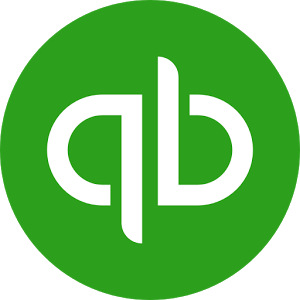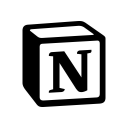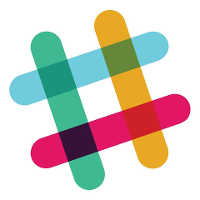We Built A $420K/Year Product Development Company With Plans To Grow 20% This Year
Hello! Who are you and what business did you start?
My name is Mark, and I am the founder of Dusseau and Company. A boutique product development company that empowers diverse founders. We work with clients diverse in thought, culture, identity, and abilities.
We help our founder's ideate, design, develop, and scale disruptive technology companies.
Our leading service is executing at different levels of the product development lifecycle. We tackle product and strategy development with a scientific approach. Our research-intensive background guides our process of experimenting and validating a product idea. Then, using the data collected and synthesized from our validation efforts, we partner with clients to build a human-centered prototype, i.e., a modern experience and interface end-users will love. As for development and scalability, we build applications in the cloud, whether AWS or Google.
Since 2018, we have worked with some pretty awesome brands; Chevron, University of Washington, Black Business Warehouse, Black Foodie Finder, Re-Invest, J.P. Morgan Chase, McKinstry, The Red Balloon Toy Store, and Contra!
However, our proudest metrics are helping diverse founders build products that have gone on to raise $700k in funding and over $15 million in company valuations.



What's your backstory and how did you come up with the idea?
I have worked in software my entire career, from undergrad to grad school and professionally. I worked as a Data scientist for a leading technology consulting firm in Washinton, D.C., building predictive models and RPAs for some of the United States' leading companies.
My passion is helping the underdog. As a former foster child, I was always around at-risk youth who were abandoned and struggled to navigate the world. If someone needed help with their math homework - I'd help them. If someone were hungry - I would use my charm to find and bring them food.
If someone were being bullied at school because of their clothes, I would give them the shoes on my feet and the shirt off my back. The difficulties of growing up in foster care are real; no movie, book, or blog post will ever capture its essence; however, this experience embodies the spirit of Dusseau and company - empathy and a commitment to helping others by any means necessary.
I laugh while typing this, but this experience has made me a terrible negotiator because I always want people to win, even at my expense. But, on the upside, it has created a service culture within our team that is 100% committed to the success and education of our founders.
It wasn't just my personal life that inspired Dusseau and Company, but my professional one. In 2017, I was the youngest appointed member of my state's small business and local-owned advisory board. In this role, I assisted state officials in leveraging technology to help minority-owned small businesses win state contracts. This experience was critical in the inspiration for creating Dusseau and Company. In addition, this experience showed me that many small businesses were behind the curve in modern software and were not being adequately served.
They couldn't disrupt their industry of choice because they didn't have the expertise or resources, which meant that so many ideas and visions were drowning in the pits of hopelessness. I was aware that hiring an expert engineer wasn't affordable for most small businesses, but I also know innovative ways to build software at a small business rate. That motivated me to take a leap of faith. So I embarked on my journey, focusing on small businesses and diverse founders. The underdogs and owners who had the vision but limited resources - as I always say, they bring the art, and we bring the science.
From the challenges faced during my childhood to the top tier, professional experience birthed Dusseau and Company - a product development company helping diverse founders build disruptive software companies.
Take us through the process of designing, prototyping, and manufacturing your first product.
Our first client came via referral, a music professor from my undergraduate studies. He wanted to build an invite-only app where users could hire life coaches and consultants.
The app needed real-time text, video, and audio communications and payment features.
Since this was our company's first project, we took a very corporate approach to building the software; this cost us a lot. We hadn't built out our internal processes yet and went with what we knew best.
The first phase was the ideation phase, which we charged around $10k for. As for expenses, we had two staffing expenses, me and a UX/UI resource who is now our head of design. We spent time unpacking the business, personas, workflows, etc. We wanted to understand the business and customers fully. We spent a ton of time on market research and interviewing customers, the primary research activities.
Luckily for us, the professor already had many users waiting for the product to launch, so the adoption was seamless.
We broke the contract out in a multi-phase approach. Once we all agreed on what we were building based on the research and product requirements, think Product Requirements Document (PRD), we would then create their prototype.
Our approach to prototyping is simple; we created a prototype that encompassed everything they wanted in parallel with documenting the user stories that align. We started with a low fidelity screen, iterated on those, and then switched to high fidelity screens before buttoning it up by making it clickable. We used Sketch to build the prototype and would have working sessions where everyone would jump in real time to collaborate on the user experience and interface.
Once this project phase was done, we would then negotiate on development. This was the most cumbersome part of the entire ordeal. I was adamant about being transparent and fair in my dealing, so I would give him an estimate at the user story level to make the business decision on what he did and didn't want. Of course, most would disagree with this approach, but I think this is the fairest way to approach development projects. Plus, we factor this time and effort into our pricing for prototyping.
Once we finally agreed on a price, we kicked off our development efforts. We built the web app with two engineers, myself and an old colleague of mine from my corporate days. We charged an hourly rate of $65 per engineer. So in total, they were spending around $130 an hour. They ended up spending around $46k with us for their MVP. As for cost, we didn't have any besides our rates. They paid for all of their software cost. I paid my old colleague $50 an hour. He was a contractor so I didn't have to pay insurance or anything like that. I was looking at about 23% in profit. I use the word profit loosely because you have to factor in taxes, which we pay but loathe.
The goal was to release features every week so that they could get users in the app as soon as possible. It took us about two months to build their MVP, and the founder kept us on the project for a year.
Overall, the project was enjoyable. I got to work with a Black founder; I helped them build a system to manage over $100k in transactions within their first year and create opportunities for independent life coaches and consultants. Now he can refer to himself as a Professor of Music and startup founder. The company is no longer around, I believe they ended up selling the software to another company.
Keep it lean; all you need is a robust process, incredible talent, and worry about the rest later.
We are still working very hard, but the early days were full of hiccups, laughs, stress, and challenges like any other company bootstrapping all of their resources to build a service culture where anyone can come and bring their ideas to life.

Describe the process of launching the business.
The launch was stressful. I wrote a business plan in 2017 and realized that my market was very saturated, and the numbers did not look so good.
Knowing that we are in a saturated market, my dream was never to dominate the market; it was to help diverse founders build the future they wanted to see.
I also realized that the companies in this space focused on development support, but we wanted to focus on the whole product - functionality, technology, user experience design, monetization, and traction.

I had to be sure of my bet because I was about to quit a high six-figure job to go off on my own with a $20k safety net. Thankfully, I purchased a home before I left to house hack with roommates for a while.
Let me save you the headache, never pay for leads! The data quality is very questionable, and just because someone is looking for your services doesn't mean they are an ideal customer.
I built a basic landing page in WordPress, created capability statements - very corporate of me, bought business cards - don't do this, and just started telling all friends in my network about my business. We also posted our company on sites like UpWork, Guru, etc.
I paid for everything with my savings, so I was rushing to hit profitability as soon as possible.
The biggest lesson learned from our start was that having a personal brand helped me get our first client. I also noticed that even though I wanted to take a new approach to providing professional services, I went to what I knew best based on my corporate experience.
As a result, I spent a lot of money on a bunch of stuff we didn't need because I mimicked a corporate structure. Don't make this mistake. Keep it lean; all you need is a robust process, incredible talent, and worry about the rest later.
Today, we are much leaner, and our processes align more with my initial vision.
Since launch, what has worked to attract and retain customers?
We wouldn't be half of who we are today without our referrals. Luckily for us, our referrals typically stay with us for at least a year. Another significant contributor to retaining customers is our contract structure.
If a top founder is waiting on funding, we will structure our deals to allow us to reduce our price in exchange for equity. This way, they can get started sooner. In addition, our relationships become long-term. I don't recommend this for everyone, but I have friends and a lawyer who helps me with these agreements.
Other strategies we experimented with were:
- Google Ads, a sales associate
- UpWork
- ThumbTack
- Bark
- Lead Generation software such as ZoomInfo
We did not see a strong enough ROI for Google ads, so we no longer use them. As for the other sites like UpWork, ThumbTack can be very successful if you have a robust vetting process. Otherwise, you can come across some poor leads.
Let me save you the headache, never pay for leads! We spent too much on lead gen software, which was a complete waste. The data quality is very questionable, and just because someone is looking for your services doesn't mean they are an ideal customer.
I can't forget about partnerships; that's something new we have been exploring this quarter. It's our way of meeting our audience where they are. I am pretty excited about some partnerships we will be kicking off with some high-profile brands and media companies in the next few months. The goal is to build a bond with our community as a comprehensive resource for their startup journey.
Today we focus on a handful of clients at a time. We now have an application process to work with us. We demonstrate to them time and time again that we can deliver. It's exceptional delivery that allows us to attract and retain customers. These customers are our most successful marketing strategy; they give us referrals and leave reviews that keep our book of business in a healthy state.


How are you doing today and what does the future look like?
Today we are doing great! We have a handful of long-term cash/equity clients. Our average client spends around $150k a year with us, which allows us to be profitable and gives us enough room to invest in expansion. Last year we did amazing amidst a pandemic, we hit nearly half a million in revenue, and this year, we are on track to grow that by 20%.
As for the next steps, we are rolling out a government sector strategy and building some in-house tools we plan to exclusively offer to our clients.
We are a team of owners, so our operations are driven by efficiency and goals. We define annual and monthly goals, milestones, and daily tasks that align. These tasks are reviewed and re-prioritized every day. Priority shifting is key to our success. I am always adamant about ensuring we are spending the right time on the right things and being very quick on when we need to pivot.
Through starting the business, have you learned anything particularly helpful or advantageous?
We have been fortunate enough to be successful with our prior and current clients when it comes to making them happy and delivering a high-quality product.
However, the biggest challenge we faced in our early stages was contracting; either our clients didn't thoroughly read or didn't understand them, but I would simplify our contracts if I could go back in time. The biggest challenge with contracting is payment terms, addressing bugs, and who is responsible for what. I advise everyone to set time aside to walk through these agreements with their clients in detail before they sign anything; never assume they or their lawyers will read them.
Also, cash management is critical! This is important for my bootstrap founders. If you do not have good personal money management skills, you are in a heap of trouble when it comes to managing your business finances. As soon as you are able, find you a fantastic lawyer, accountant/bookkeeper, and personal assistant.
One thing I learned from my corporate days is the importance of processes. As a result, we use a process automation solution, ProcessStreet, which I swear by as it makes onboarding and project management seamless. Although we try to meet our clients where they are, we use predefined processes to ensure we consistently cover our bases.
Another important thing is talent! Finding and retaining talent for a small business is very hard. However, I can bring on great talent for a few reasons; I am a worker's owner. My team knows that at any point and time, I will roll up my selves and help them. I will help with delivery, engineering, and design, counsel them on their endeavors, and invest in them when it makes sense. At the end of every year, we send out a company survey, and time and time again, my team states that they simply enjoy working WITH me and never FOR me. It's the difference between WITH and FOR that keeps our family tight.
What platform/tools do you use for your business?
As I mentioned early, we are in the process of building out our internal tools. However, for now, we use a few software:
- Notion: Product and Project management
- Slack: Communications
- Roadmapping: Airfocus
- LucidChart: Brainstorming, architectural design
- Figma: Prototyping
- TimeDoctor: Time tracking
- Quickbooks Online: Accounting
- ProcessStreet: Process management


What have been the most influential books, podcasts, or other resources?
Most of my influence comes from my professional experience. I have been fortunate enough to work with some of the best minds in Tech. For example, I have worked with early engineers at AOL, Microsoft, Oracle, etc.
I am not a fan of podcasts; I feel like our journey is unique to us as there aren't many service firms committed to increasing diverse founders in Tech. Maybe one day, we might create a podcast sharing our journey.
However, I will say a book I love is Think and Grow Rich - A Black Choice this book is inspiring and keeps me hyper-focused on our mission. I have probably read it three times now.
One resource I will always go to is peer-reviewed White papers in Google Scholars. Go with a white paper if you want an unopinionated and well-researched view on a specific topic.
Advice for other entrepreneurs who want to get started or are just starting out?
For those who are just getting started, I will say this isn't something you need to jump in headfirst. Instead, you can start this as a side-hustle and when you are confident that you have just enough customers to transition full-time - do it.
When making that transition, it's essential to consider your deal pipeline. Do you have enough work or capital to keep your business afloat for a year or more now and in the foreseeable future? These are some of the questions you should ask yourself. For example, our first project, by design, lasted for an entire year, which gave us enough working capital to invest our time into relationship building.
I only paid myself enough to cover my bills and reinvested the rest back into the business. Whether it be marketing, conferences, etc.
Another critical thing to ask yourself is, can you sell? Selling is the single most crucial element of any service-based business. I was adamant about learning business development outside of my data science work when I finished grad school. I contributed to business development efforts for every company I have ever worked for. I would stay after hours every day to work on proposals. This led to me being able to attend company and client dinners, invited to conferences, and much more. This experience was fundamental to my sales experience - it taught me to focus on the "why" and not so much on "how."
This experience helped me a ton in writing proposals, holding sales calls, closing deals, and how to empathize with a business lens.
My rule of thumb when it comes to sales is that people buy emotions - it's up to me to understand the core emotion they want to feel and deliver the desired feeling.
In addition to sales, you have to be a humble learner. You should constantly be looking for ways to improve your service offerings. I consider myself a scientist at heart because I am always experimenting with many things.
We can't forget the team, the second most crucial aspect of a service-based business.
I can talk about the importance of a team for hours on end. But, first, you need to clarify that you appreciate your team, especially in a service-oriented business. Our appreciation and empowerment allow them to show up as their true selves. In this life, there are so many challenges that everyone experiences, and we believe that allowing people to be "human" inspires them to be more effective and be more grounded in the work we do. We just know that things will get done, and we trust each other to do so.
An example I can share, we have been directly impacted by one of our team members having to navigate war in her home country of Ukraine. We all were able to aid her in several ways as she navigated these challenging times. We are so blessed that she has stuck around to contribute and deliver despite the war in her backyard.
Lastly, It's helpful to have complete visibility across the team. Never build out your business strategy in a vacuum. Everyone at the company should have a platform to contribute. There is so much to do, and getting everyone involved early on is how you roll out an execution plan worth writing. We use Notion to assure everyone has access to everything going on internally; we can openly collaborate on moving our family forward.
Are you looking to hire for certain positions right now?
A technical product manager, a business analyst, content creator/marketer
E-mail us at hello@dusseauand.com, and be sure to cc. dani.jones@dusseauand.com.
Where can we go to learn more?
If you have any questions or comments, drop a comment below!

Download the report and join our email newsletter packed with business ideas and money-making opportunities, backed by real-life case studies.

Download the report and join our email newsletter packed with business ideas and money-making opportunities, backed by real-life case studies.

Download the report and join our email newsletter packed with business ideas and money-making opportunities, backed by real-life case studies.

Download the report and join our email newsletter packed with business ideas and money-making opportunities, backed by real-life case studies.

Download the report and join our email newsletter packed with business ideas and money-making opportunities, backed by real-life case studies.

Download the report and join our email newsletter packed with business ideas and money-making opportunities, backed by real-life case studies.

Download the report and join our email newsletter packed with business ideas and money-making opportunities, backed by real-life case studies.

Download the report and join our email newsletter packed with business ideas and money-making opportunities, backed by real-life case studies.














